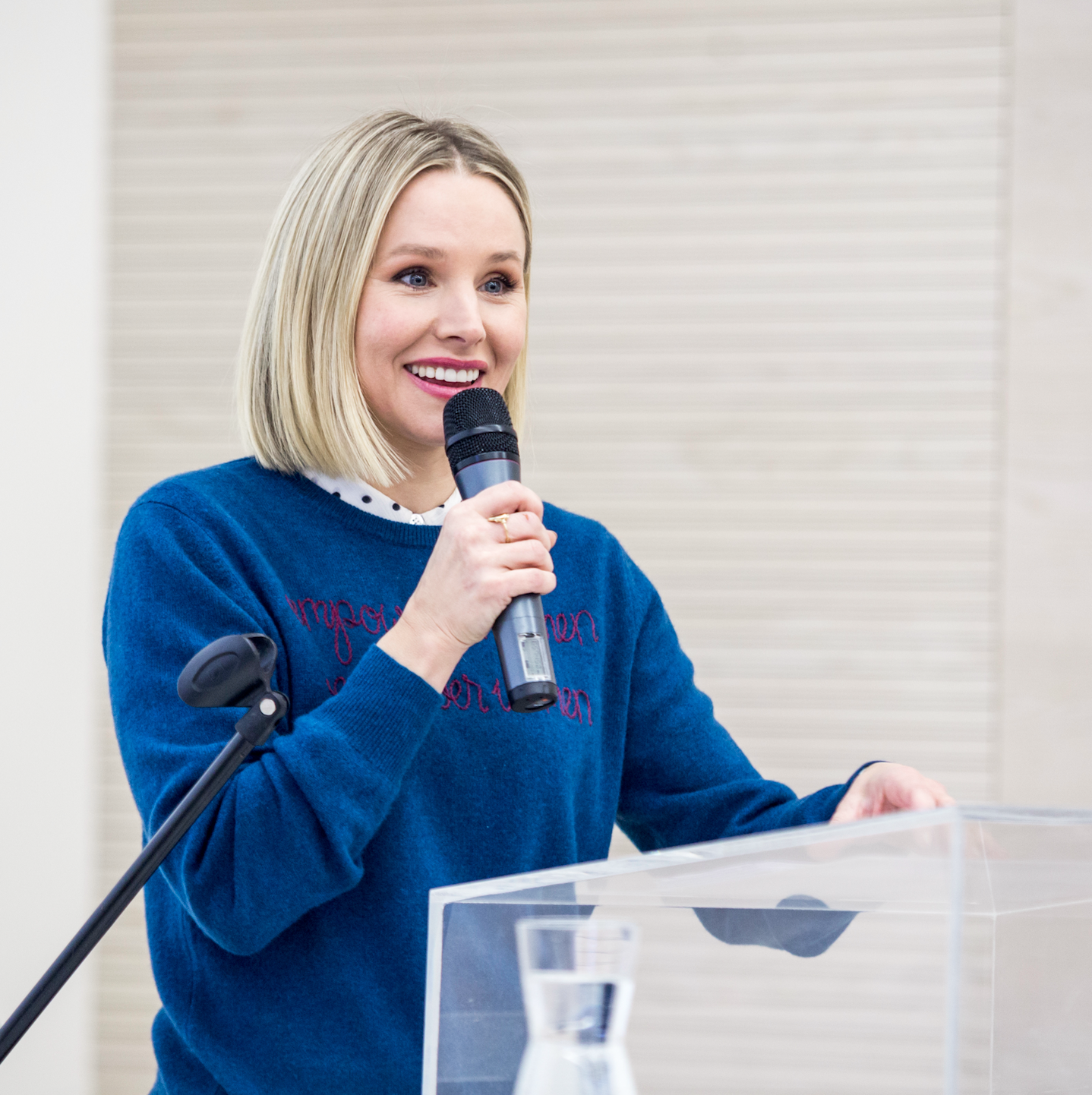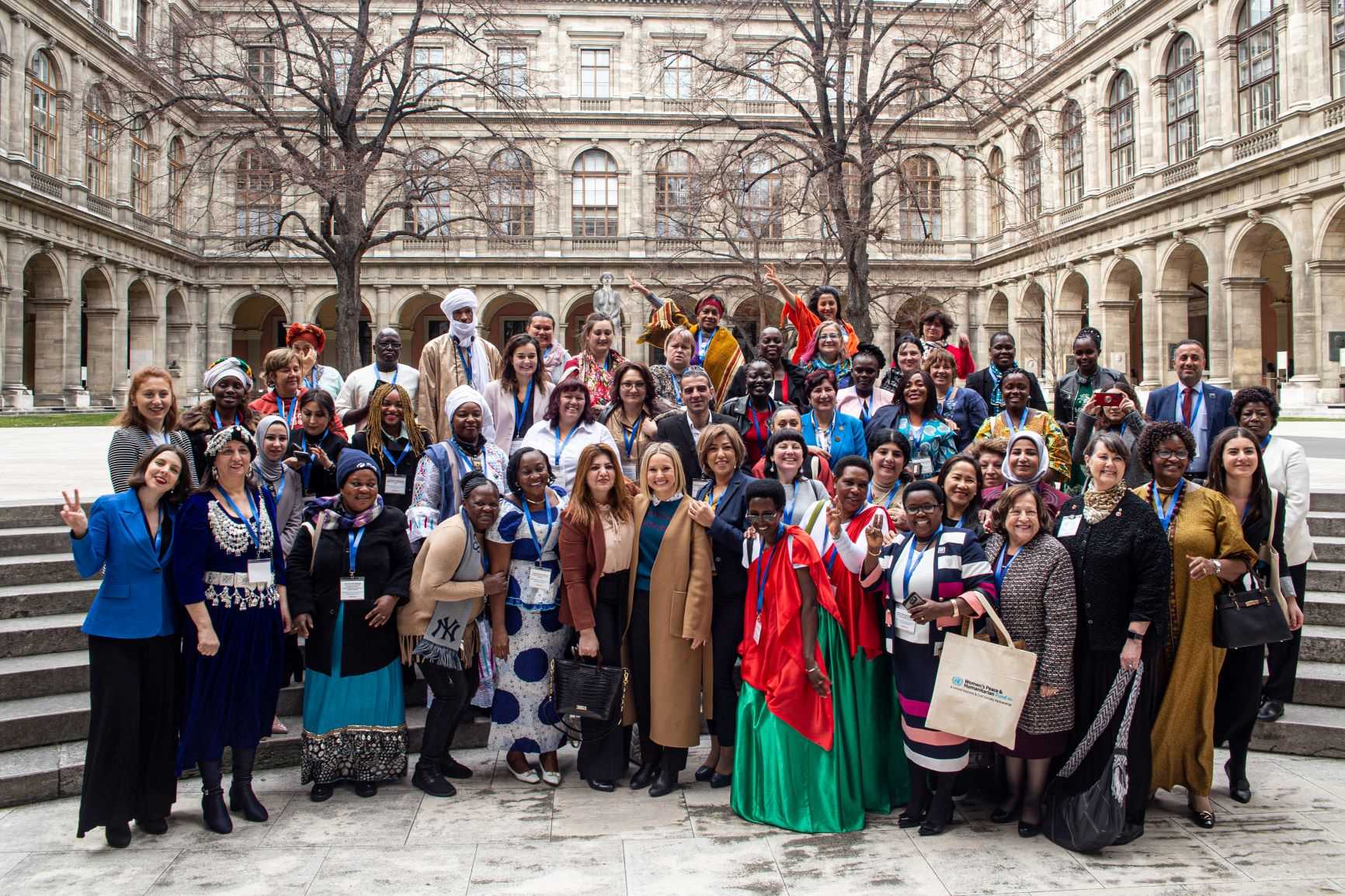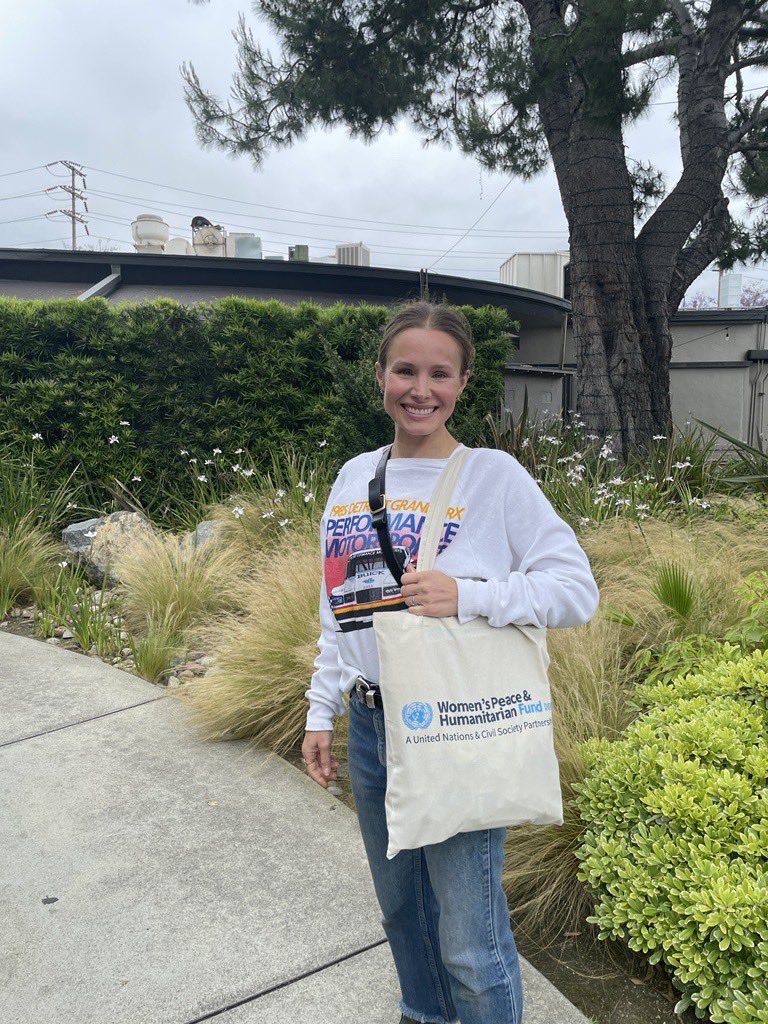Kristen Bell, celebrated actor and advocate, will join the Global Citizen Festival stage in New York City this September. As a Global Advocate for the United Nations Women’s Peace & Humanitarian Fund (WPHF), she has championed the voices of women leading change in their communities. At this year’s festival, she will spotlight both WPHF and Global Citizen’s combined missions to take bold steps toward a world where women and girls, no matter where they are born, have equal access to opportunity and lasting peace.
To celebrate the launch of the WPHF “Peace Is” Global Campaign, we interviewed Kristen ahead of this month’s International Day of Peace and the 80th
session of the United Nations General Assembly to find out what peace means to her.
1. As Global Advocate of the United Nations Women's Peace & Humanitarian Fund (WPHF), what has inspired you most about the women you've met who are driving change in their communities?
What inspires me most is their resilience, their courage, and their creativity. These women are working in some of the toughest places, often with very little resources, and yet they don't just survive: they step up and lead. They're finding local solutions, keeping their communities safe, making sure girls go to school, start businesses, and proving that when women have support, it benefits everyone.
Teaming up with WPHF as their Global Advocate over the years, I've had the privilege to meet some of these incredible local women activists and see their impact firsthand. That's also why I'm so proud to be part of the WPHF "Peace Is" Campaign, which is launching this month ahead of the International Day of Peace.
2. The Global Citizen Festival's mission is bold: to end extreme poverty within our lifetime and create a world where every child has access to education and opportunity. As WPHF Global Advocate, why does this mission resonate with you personally?
Because I'm a mom, I want every child to have the chance to dream and build a future. Poverty — especially in conflict and crisis — takes that away. It reduces education, opportunity, and the promise of peace gives it back. What I've seen through the work of my friends at WPHF is that when women get the support they need, they pour it right back into their families and communities, and that's exactly the kind of goal worth showing up for.
3. Education is one of the most powerful tools for change. How do you think storytelling — whether through entertainment or your advocacy for peace — can help inspire more people to see education as a right for every child, everywhere?
Stories connect us. They help us see ourselves in someone else's shoes. That's what I love about WPHF's "Peace Is" Campaign. It's about connecting us all, amplifying real stories, and showing the world that progress and peace are possible through collective action.
4. The entertainment industry has incredible influence. What progress have you seen in the way women are portrayed on screen, and why is authentic representation important for young audiences?
I've seen such a big shift toward showing women as real people. They're not just secondary characters anymore: they're leading, they're funny, they're messy, they're complex and powerful. We can all relate! And that's huge because young people deserve to see themselves reflected honestly.
That's also what I see through my work with WPHF: women showing up authentically as leaders, changemakers, peacebuilders, and first responders in crises. These women deserve support and to be portrayed as the powerful agents of change that they are, and WPHF is making that a reality for women leaders across the globe.
5. Through your work with WPHF, you've witnessed women leading and creating brighter futures for others. Can you share a story that illustrates the ripple effect of opportunity?
There are so many stories… It's impossible to pick just one! Through WPHF, I've met women working in conflict and crisis zones who set up safe spaces in their communities, helped girls stay in school, taught other women new skills, and built shelters with their own hands after an earthquake. Every little thing they do sparks a ripple effect — when women are supported, change spreads way beyond what they ever imagined. The "Peace Is" Campaign shows that when you invest in one woman, you're really investing in an entire community, and that momentum is unstoppable.
6. At the Global Citizen Festival, millions will be tuning in around the world. What message do you hope to share with the next generation of changemakers who care deeply about fairness, opportunity, and education?
I want them to know their voices and actions matter. Everyone needs to be the change they wish to see in the world. You too can make a difference and be a part of the "Peace Is" Global Movement.
7. Your career has combined creativity with purpose. How do you see artists and public figures helping to spark hope and inspire people to take part in building a more equal world?
Art has a way of opening hearts, and public figures can shine a light where it's needed most. When we use our platforms to share stories of resilience, of women leading peace and keeping their communities safe, that sparks hope. And hope is always the first step toward action.
8. Looking ahead, what gives you the most hope about the future, especially for women and children who deserve the chance to learn, grow, and shape their own path?
Young people are fearless — they refuse to be beaten down by the rules the world has given them. They can still imagine peace everywhere, and they know it's attainable. We need to remember that kind of hope. If we keep supporting them and keep investing in women and girls everywhere, the future has the potential to be brighter and more peaceful than we can imagine.
The Global Citizen Festival takes place in New York City this September, bringing together artists, advocates, and global citizens to take action on the world's most pressing issues. Learn more about the UN Women's Peace & Humanitarian Fund and the "Peace Is" Global Campaign at their official websites.


